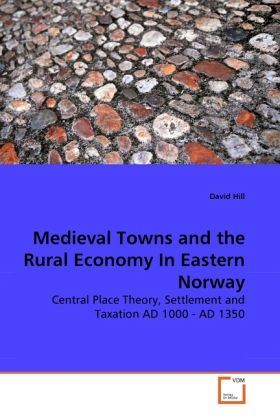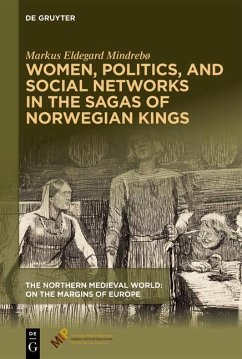
Medieval Towns and the Rural Economy In Eastern Norway
Central Place Theory, Settlement and Taxation AD 1000 - AD 1350
Versandkostenfrei!
Versandfertig in 6-10 Tagen
39,99 €
inkl. MwSt.

PAYBACK Punkte
20 °P sammeln!
This work represents an insight into the economy of the Norwegian High Middle Ages. It presents the process of urban development in Norway from AD 1000 - AD 1350 in order to highlight significant economic differences between Norway and Europe and England. After the first towns were founded by the Norwegian Crown in the 11th century urban development stalled. No more towns were founded from AD 1200 until the mid 17th century and large tracts of the Norwegian landscape were to remain without a town or a market until almost a century after the reformation. In this respect Norway is unique by not ...
This work represents an insight into the economy of the Norwegian High Middle Ages. It presents the process of urban development in Norway from AD 1000 - AD 1350 in order to highlight significant economic differences between Norway and Europe and England. After the first towns were founded by the Norwegian Crown in the 11th century urban development stalled. No more towns were founded from AD 1200 until the mid 17th century and large tracts of the Norwegian landscape were to remain without a town or a market until almost a century after the reformation. In this respect Norway is unique by not conforming to the patterns that represent urban development elsewhere in Europe.The path that took Norway from being a patchwork of pagan Viking chiefdoms to a unified Medieval Christian Kingdom was short. The result was a monopolisation of the economy by the Crown and Church to the detriment of weaker urban development, and a system that collapsed under the demographic crisis that followed in the wake of the Black Death.












